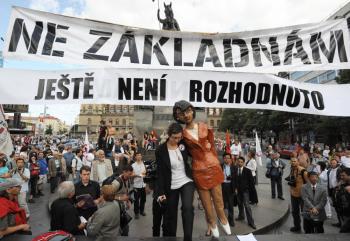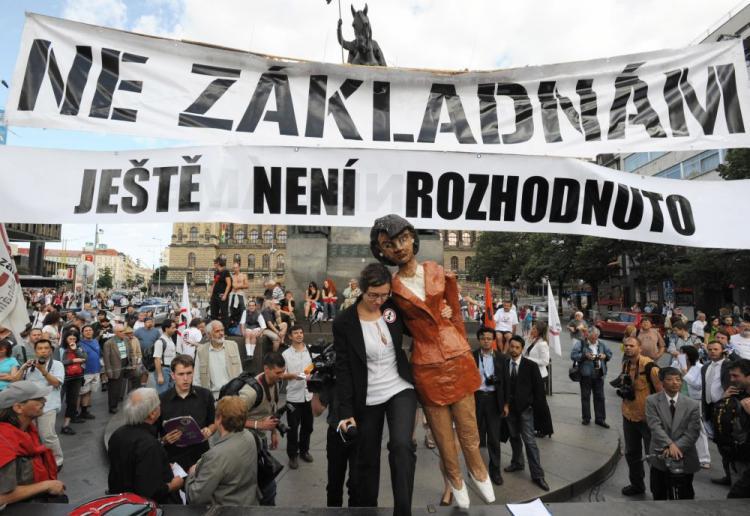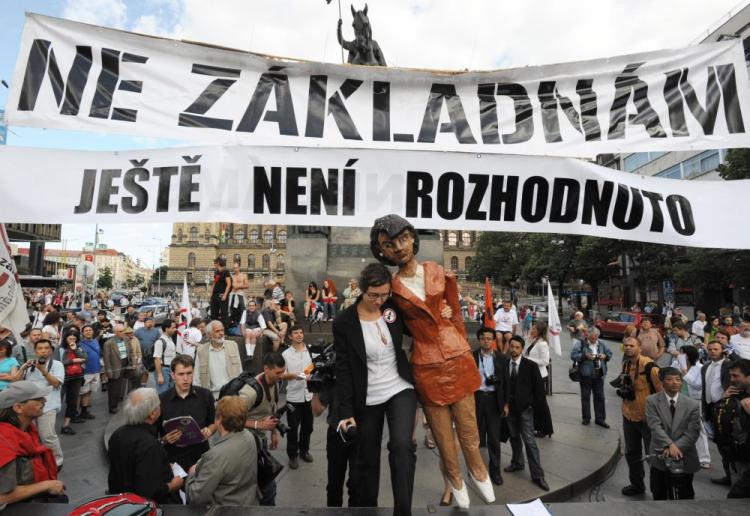SOFIA—Czech Premier Jan Fischer announced at a press conference on Thursday that U.S. President Barack Obama had notified him over the phone of a decision to halt development of a missile system on Czech Republic territory.
Czech officials have insisted on continuing work on at least one of the contracts signed between Czech and American counterparts, Bulgarian news Web site Dir.bg reported.
Political parties’ first reactions were mixed. Iri Paroubek, chair of the Social-Democratic Party, commented that technical parameters of the missile base proved unfeasible, thus the radar could not become part of the overall NATO defensive system. His party welcomed the abandonment of the plan as a “victory” for the nation. The same stance was adopted by the local branch of the Green Party.
It was during former Prime Minister Mirek Topolanek’s term that the Czech government signed the agreements concerning the missile system with former U.S. President George W. Bush. Topolanek has said that this step by President Obama proves a loss of interest in Eastern Europe. The Dir.bg Web site notes Topolanek’s explanation for this loss of interest as a lack of ripe democracy in the region.
In Poland the decision was described as a catastrophe by a representative of the Defense Ministry, quoted by Interfax. Another high-level Polish official was cited as saying that ruling out the missile shield was a failure for U.S. policy in Eastern Europe.
The Missile Shield, Iran and Russia
In the agreement the United States and Poland signed in August 2008, a missile interceptive base was to be constructed near the Baltic Sea, and a missile radar facility was to be built in the Czech Republic. According to the plans, which infuriated Russia, the missile shield would have been fully operational by 2012.
A Wall Street Journal report speculated that the decision to stop developing the base was the fact that the speed with which Iran has been working on its own nuclear program was not that fast. According to the BBC, the Wall Street Journal presumes that the United States had been relieved and didn’t see a reason for taking such serious defense measures.
Meanwhile, Iran insists that its nuclear strategy is for developing science and for energy purposes. Israel and Western European countries fear that the technology might be used for nuclear weapons.
The BBC also commented on Russia’s November 2008 moving of its ballistic missiles to Kaliningrad, which is situated between two NATO members Lithuania and Poland. Explaining the reason for the shift in positions, President Dmitry Medvedev said it was to “neutralize, if necessary, the [U.S.] anti-missile system.”







